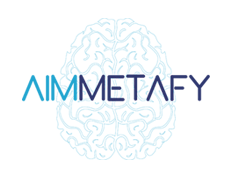Neurofeedback is a fascinating approach that taps into the brain’s ability to self-regulate. If you’re curious about how you can harness this technique in the comfort of your own home, you’re in the right place. In this article, we’ll explore some simple and effective neurofeedback techniques that are perfect for beginners. Get ready to enhance your focus, reduce stress, and improve your overall well-being with these accessible methods!
1. Breathing Exercises for Brain Optimization
One of the simplest yet most effective neurofeedback techniques begins with mindful breathing. By focusing on your breath, you can create a calming effect that promotes brain regulation.
To get started, find a comfortable seated position. Take a deep breath in for a count of four, hold it for another four, and then exhale slowly for a count of six. This rhythmic breathing pattern not only calms the mind but can also regulate the brain’s electrical activity, allowing you to achieve a more balanced state of being.
As you practice, consider adding visualization techniques. Picture each breath as a wave washing over you, promoting relaxation and mental clarity. Over time, with frequent practice, you may find yourself better equipped to face stressors with a calm and collected mind.
2. Guided Visualization Practices
Picture this: you’re lying down, eyes closed, and envisioning a peaceful scene. Guided visualizations can help train your brain to achieve a meditative state, making it easier to manage stress.
Start by choosing a location that relaxes you, whether it’s a serene beach or a tranquil forest. Listening to a guided meditation can enhance this experience further. As you immerse yourself in these vivid mental images, your body’s relaxation response kicks in, helping to lower stress hormones.
Try to engage all your senses in this process. Feel the warmth of the sun on your skin, hear the gentle waves lapping at the shore, and notice the rich colors of your surroundings. The more detailed your visualization, the more impactful it will be on your brain’s pathways, ultimately helping you foster a calm and focused mindset.
3. Meditation for Mental Clarity
Meditation is a timeless practice that encourages relaxation and awareness. Regular meditation can enhance your brain’s ability to self-regulate and stay focused on tasks.
To begin your meditation journey, set aside a specific time each day. Find a quiet spot, sit comfortably, and close your eyes. Focus your mind on your breath, and if your thoughts drift, gently bring your attention back. The beauty of this practice lies in its simplicity.
Studies have shown that even a few minutes of daily meditation can significantly improve cognitive function and emotional resilience. Over time, you might find that your ability to concentrate, manage emotions, and reduce anxiety increases, positively affecting every aspect of your life.
4. Biofeedback Devices for Home Use
These handy gadgets can provide real-time feedback on your body’s physiological functions. By monitoring things like heart rate and muscle tension, you can learn how to control your responses to stress.
Devices like heart rate variability monitors allow you to see how your body responds to different scenarios. For instance, you might learn that your heart rate spikes during stressful times. Understanding this response can empower you to employ calming techniques—like deep breathing or visualization—to bring your heart rate back to a more optimal level.
Moreover, biofeedback can be a fun and engaging way to track your progress. As you become more adept at regulating your physiological responses, you might also notice improvements in your mood and overall cognitive function. The key is to be consistent and patient as you explore this fascinating technology.
5. Mindfulness Techniques to Stay Present
Practicing mindfulness can help you stay grounded and aware in the present moment. Simple activities, like mindful eating or walking, can significantly impact your brain’s ability to process information.
When practicing mindful eating, for instance, focus on each bite. Notice the texture, taste, and aroma of your food. This practice not only enhances eating experiences but slows down your thoughts, allowing your brain to reset and refocus.
Similarly, you can incorporate mindfulness into your walks. Instead of letting your mind wander, tune in to the sounds around you: the rustling leaves, distant conversations, or even the rhythm of your footsteps. Engaging your senses can create a potent feedback loop, grounding you in the moment and enhancing overall cognitive clarity.
6. Brainwave Entrainment for Focus
Brainwave entrainment involves syncing your brainwaves to external stimuli, like sound or light. This can help enhance your concentration and cognitive performance.
You can start this process by listening to binaural beats or specific music tracks designed for focus. As your brain synchronizes with these frequencies, you may notice an increase in your ability to concentrate on tasks.
Over time, this technique can also foster a deeper state of relaxation, making it easier to transition into more complex tasks. Experiment with different audio options, find what resonates best with you, and incorporate it into your daily routine for optimal results.
7. Art Therapy as a Creative Outlet
Engaging in art therapy can stimulate brain function and improve emotional expression. Whether you’re drawing, painting, or sculpting, creative activities can be incredibly therapeutic.
You don’t need to be a professional artist to benefit from this practice; the goal is to express yourself. Set aside time to get creative. Dive into colors, shapes, and forms that resonate with your feelings. The process itself—rather than the end product—is where the neurofeedback benefits lie.
As you lose yourself in creativity, you may find a sense of tranquility washing over you. This can significantly impact your emotional well-being, providing you with a safe space to explore and express your feelings, ultimately enhancing your mental clarity and focus.
8. Cognitive Games to Challenge Your Mind
Playing cognitive games can help improve your memory and problem-solving skills. There are many apps and online resources that offer fun brain challenges tailored to various levels.
Engaging in games like puzzles or strategy games forces your brain to think critically. These activities not only make learning enjoyable but also have a lasting impact on your brain’s connectivity and overall cognitive function.
You might even find friendly competition with family and friends to be motivational. Create a weekly challenge where everyone participates. This weekly ritual won’t just draw you closer; it will also help stimulate brain growth and neuroplasticity.
9. Movement and Exercise for Brain Health
Physical activity enhances blood flow and oxygen delivery to the brain. Incorporating regular movement into your routine can improve your mental clarity and overall cognition.
Whether it’s a brisk walk, yoga, or a home workout, getting your body moving boosts the release of neurotrophic factors—proteins essential for brain health. Over time, these factors can enhance learning and memory while reducing anxiety and depression.
Try mixing in various forms of exercise to keep things interesting. Dance, hike, or engage in a sport you love. The key is to find activities that excite you, ensuring you stay committed to your physical and mental health journey.
10. Journaling for Emotional Clarity
Journaling is a powerful tool for reflection and emotional regulation. Writing down your thoughts can help you process feelings and gain insights into your mental patterns.
Begin by setting aside a few minutes each day to jot down your thoughts. Don’t worry about grammar or structure; just write freely. By allowing your feelings to flow onto the page, you create space in your mind, leading to increased clarity and understanding.
Additionally, consider using prompts to delve deeper into specific areas of your life. This can be especially helpful in navigating complex emotions and experiences. Over time, you’ll likely notice patterns that can inform your personal growth journey.
11. Sleep Hygiene for Restorative Sleep
Quality sleep is crucial for brain function. Establishing a solid sleep hygiene routine can improve your ability to learn and regulate your emotions effectively.
To enhance your sleep quality, start by creating a peaceful bedtime routine. Dim the lights an hour before sleep, and avoid screens to help your brain transition into a restful state. Consider incorporating calming activities, such as reading or gentle stretching.
By prioritizing sleep, you’ll likely notice improvements in your cognitive abilities, mood stabilization, and overall mental health. With restorative sleep, your brain can repair itself, leading to clarity and enhanced performance in tasks throughout your day.
12. Mindful Listening to Enhance Awareness
Practicing mindful listening can improve your relationships and enhance emotional intelligence. By truly focusing on others when they speak, you engage your brain in a thoughtful way.
During conversations, try to set aside your own thoughts and concerns. Instead, be fully present. Notice the speaker’s tone, body language, and the context of their message. This level of engagement not only strengthens your connection but also cultivates empathy.
The more you practice this, the more you’ll develop your listening skills. This not only enhances your understanding of others but also enriches your own emotional landscape, leading to improved communication and healthier relationships.





